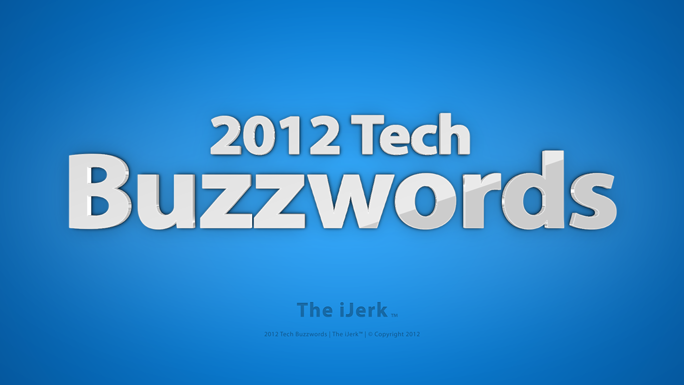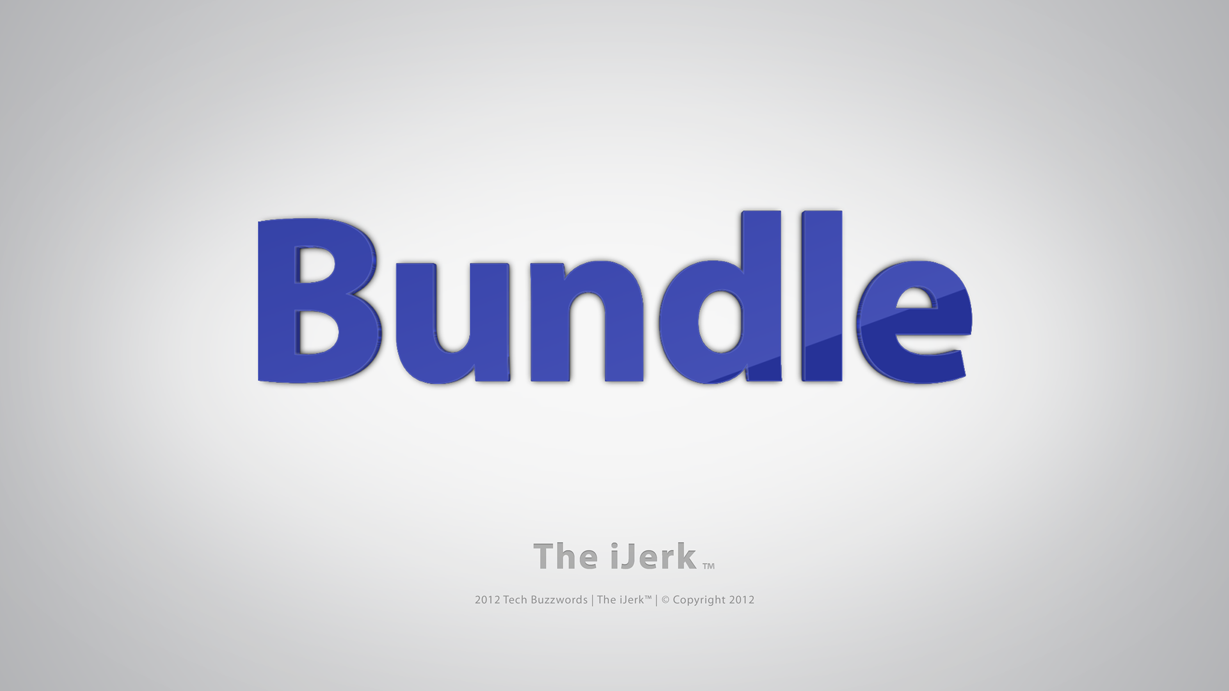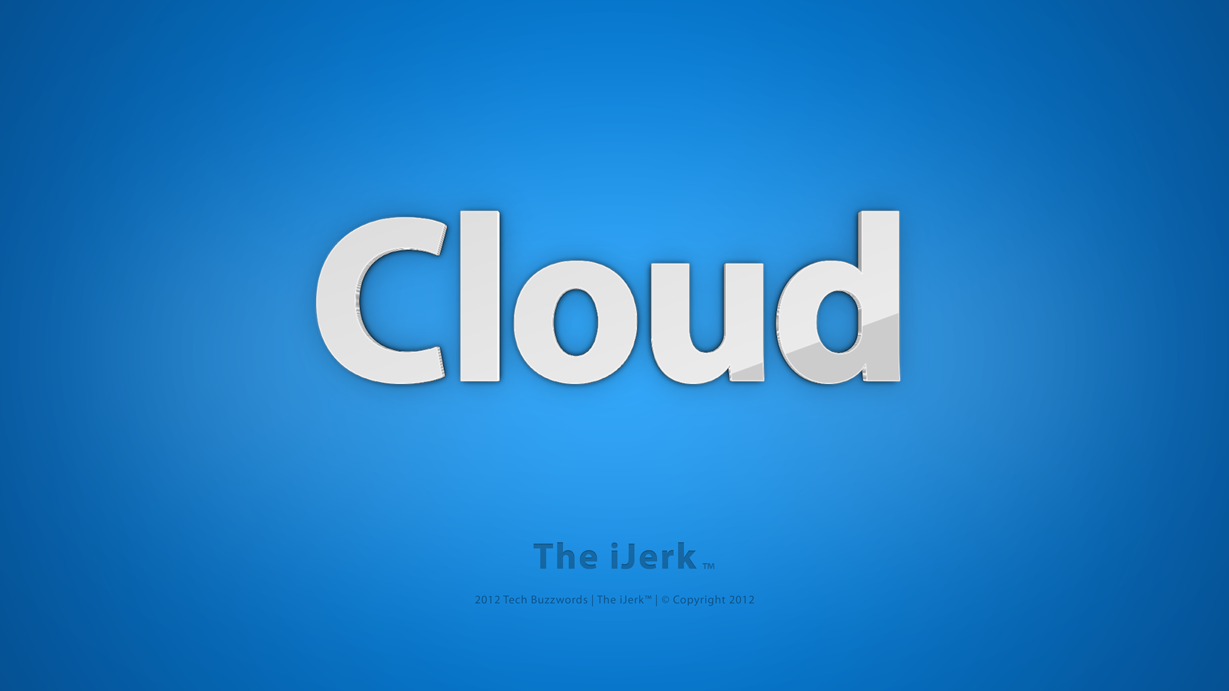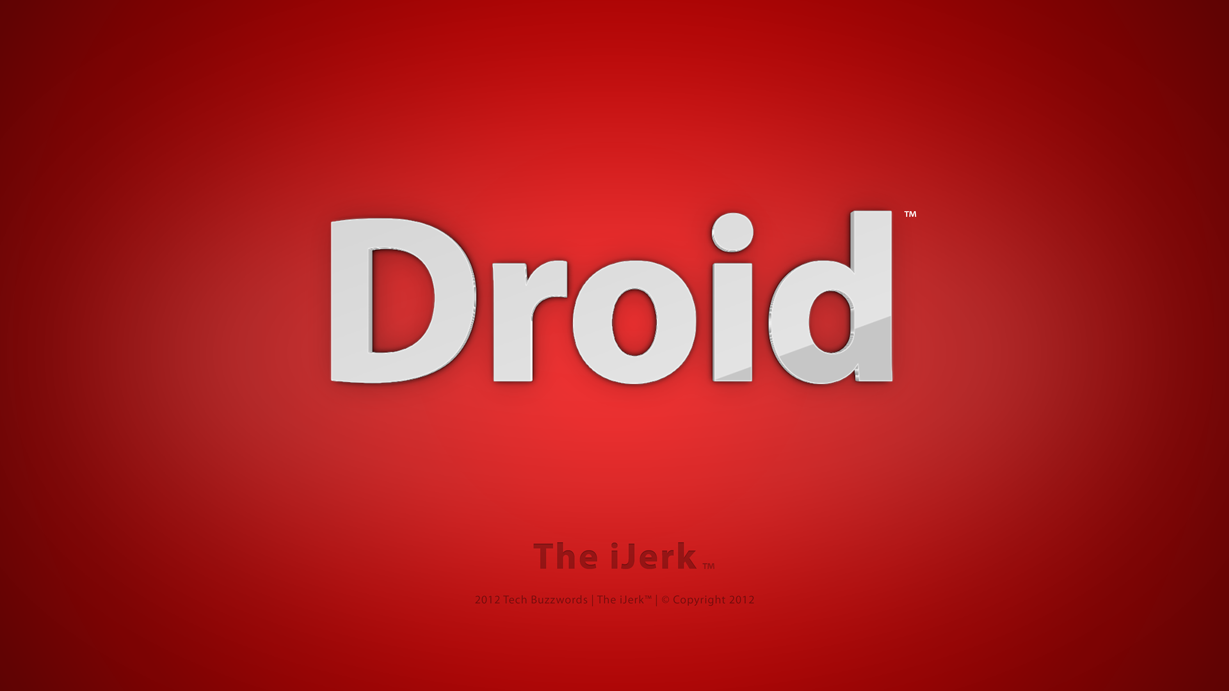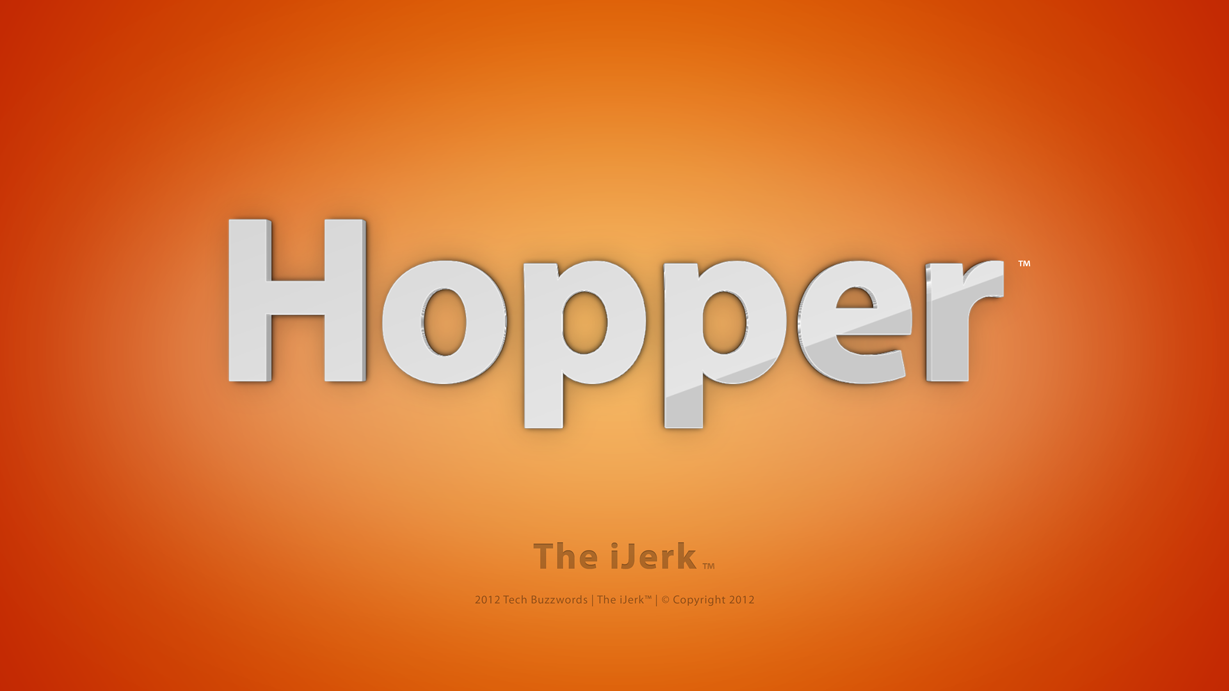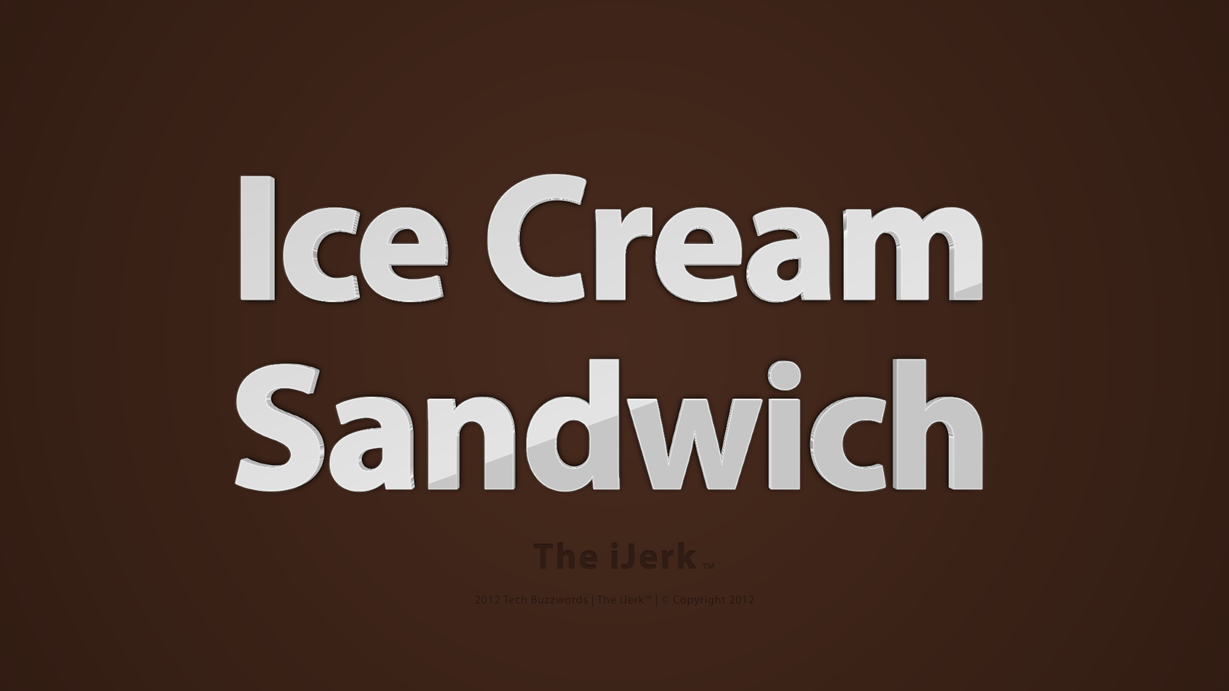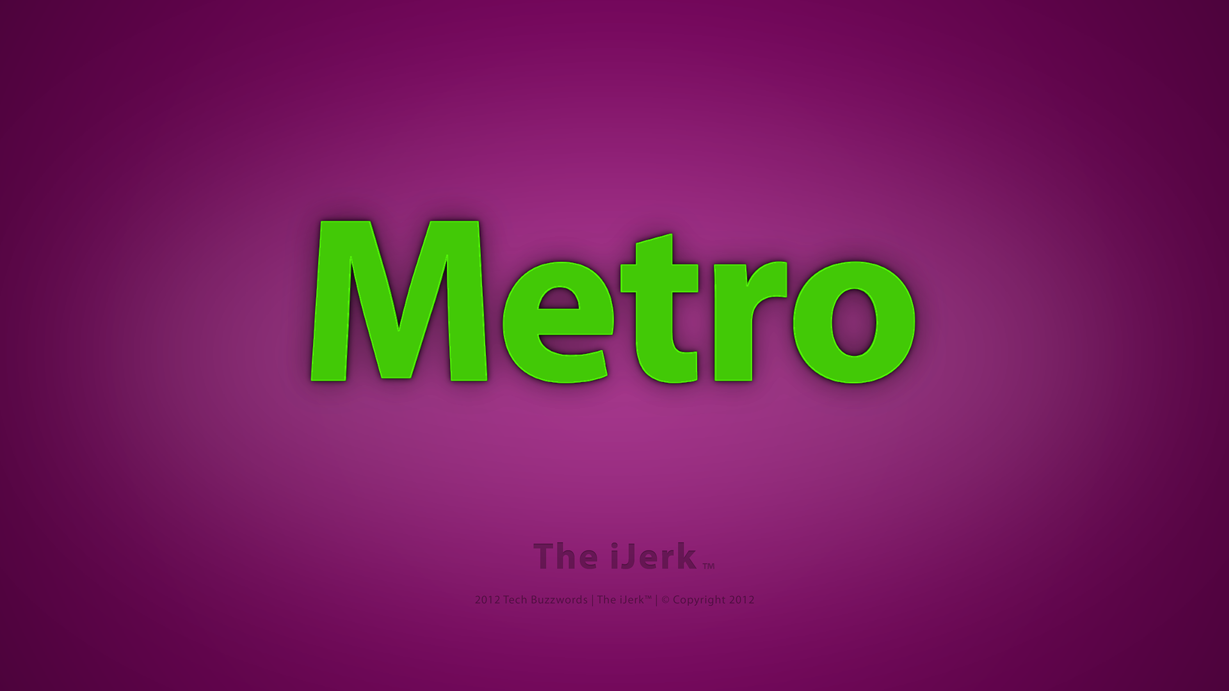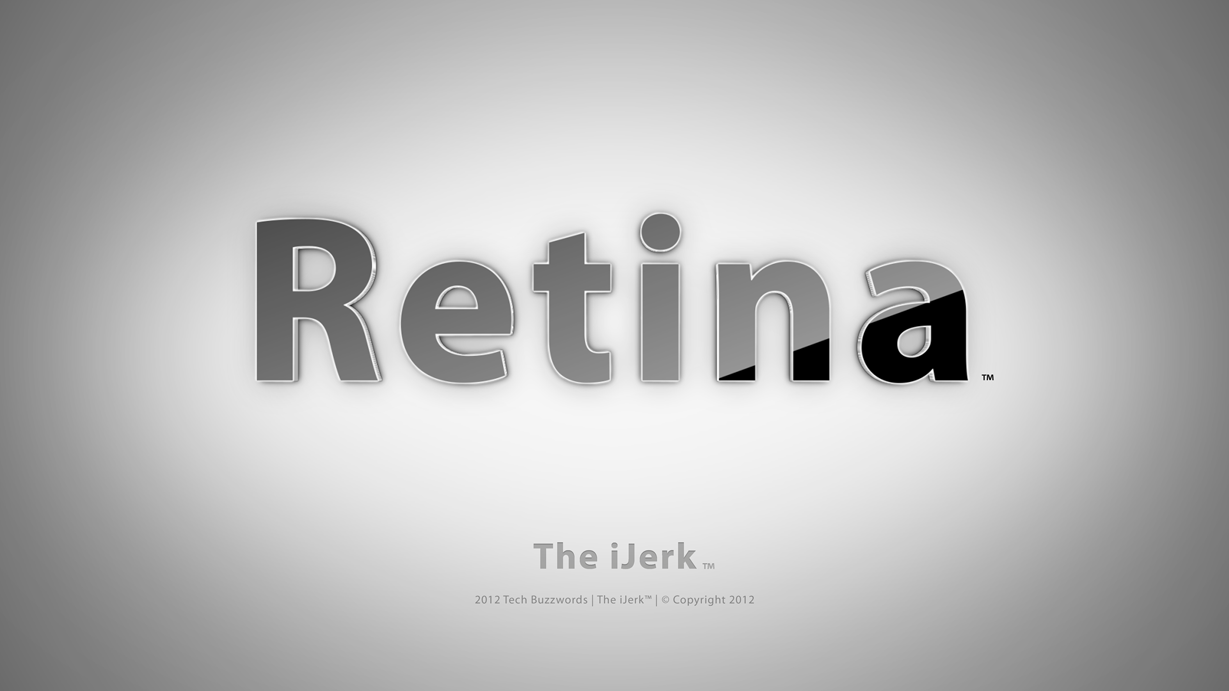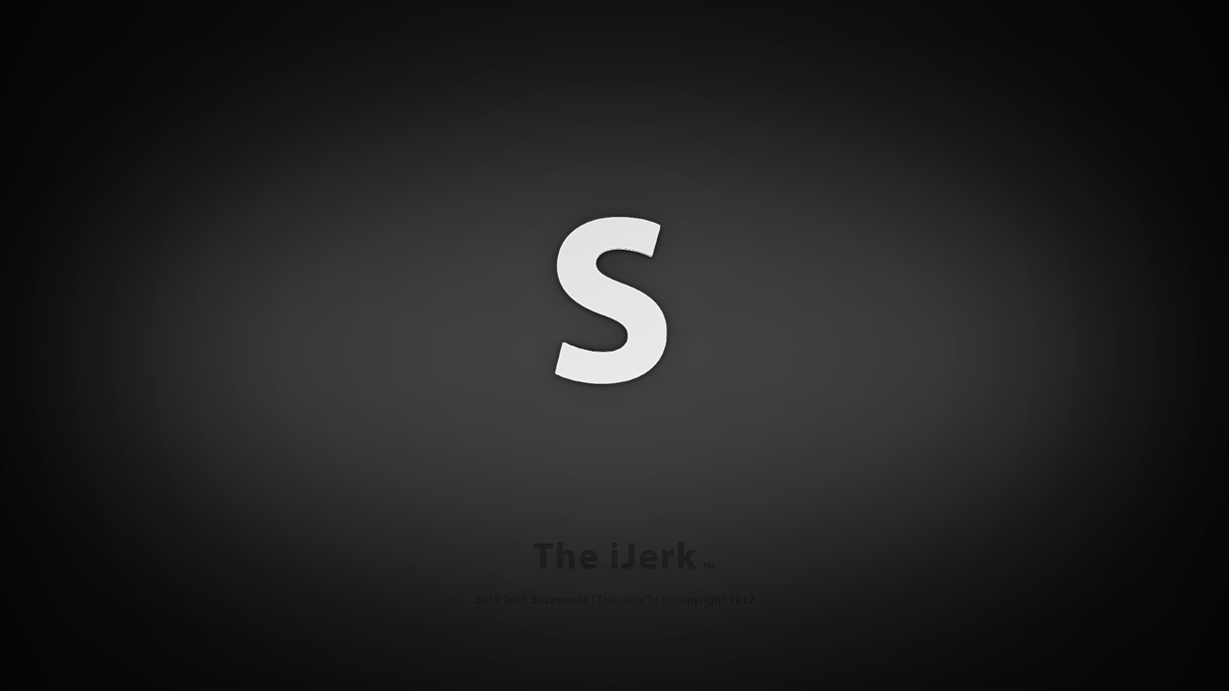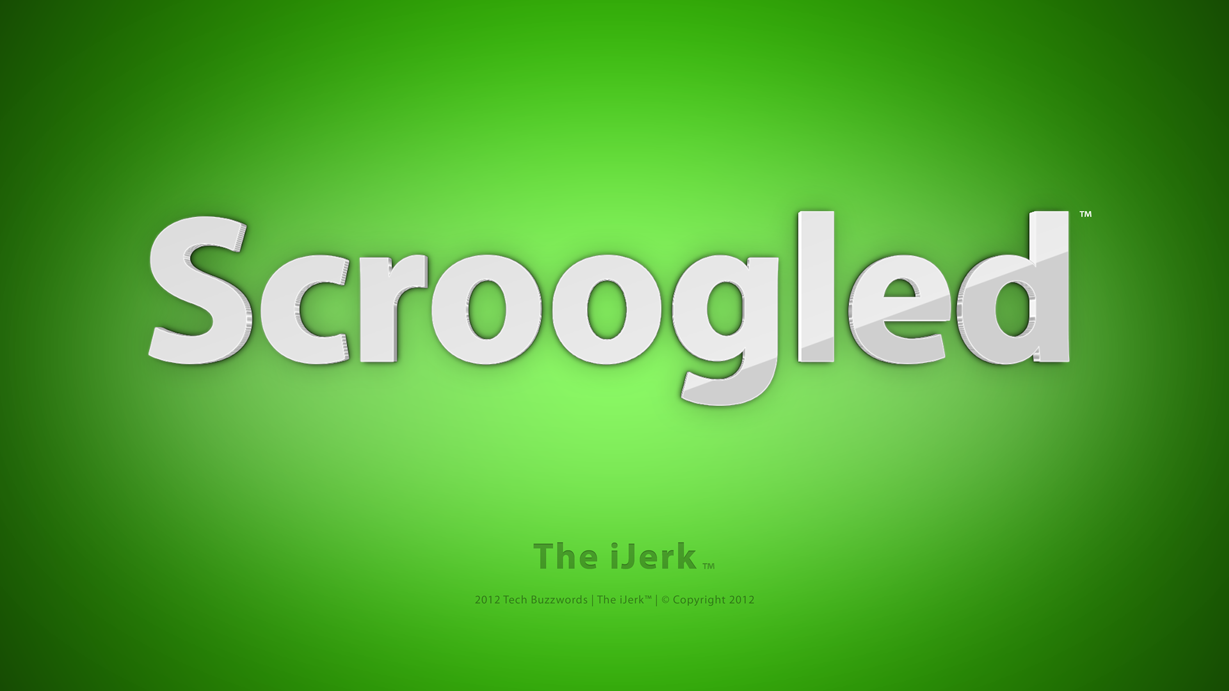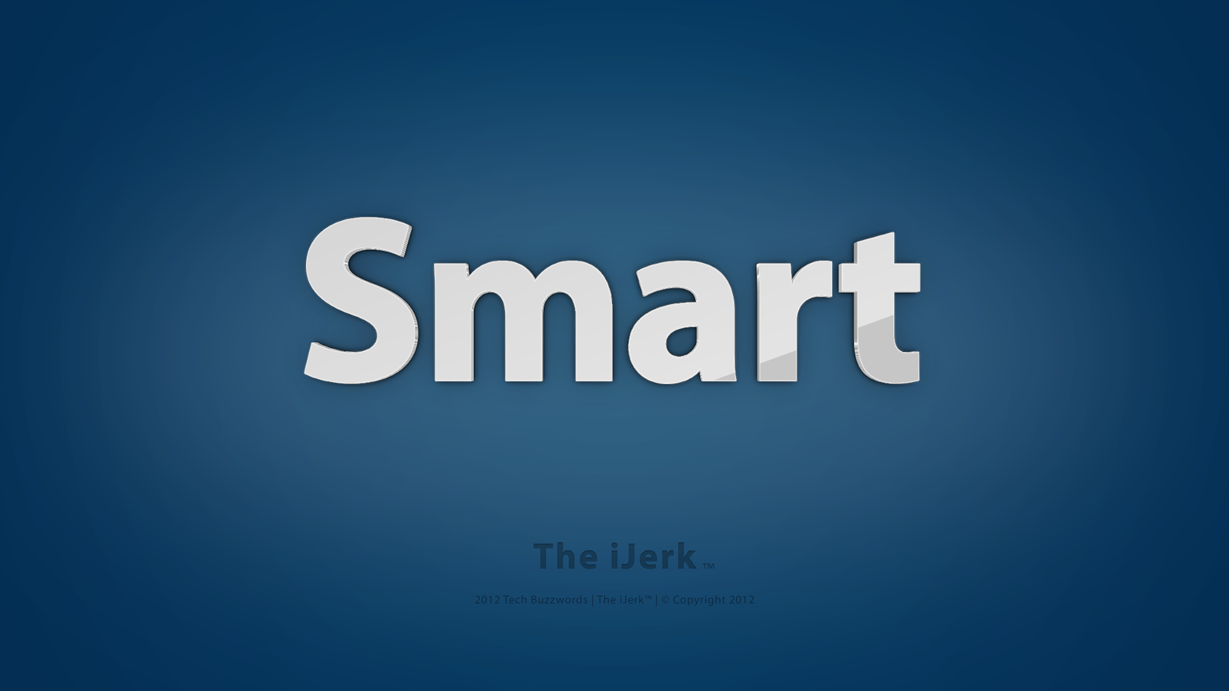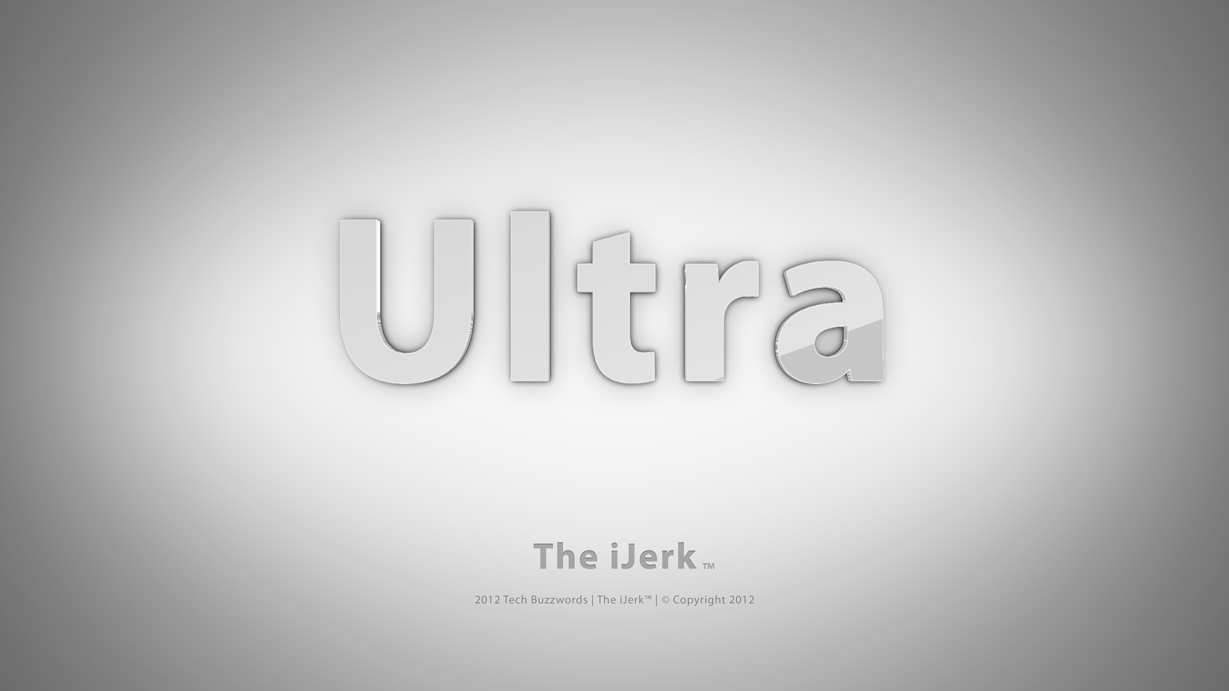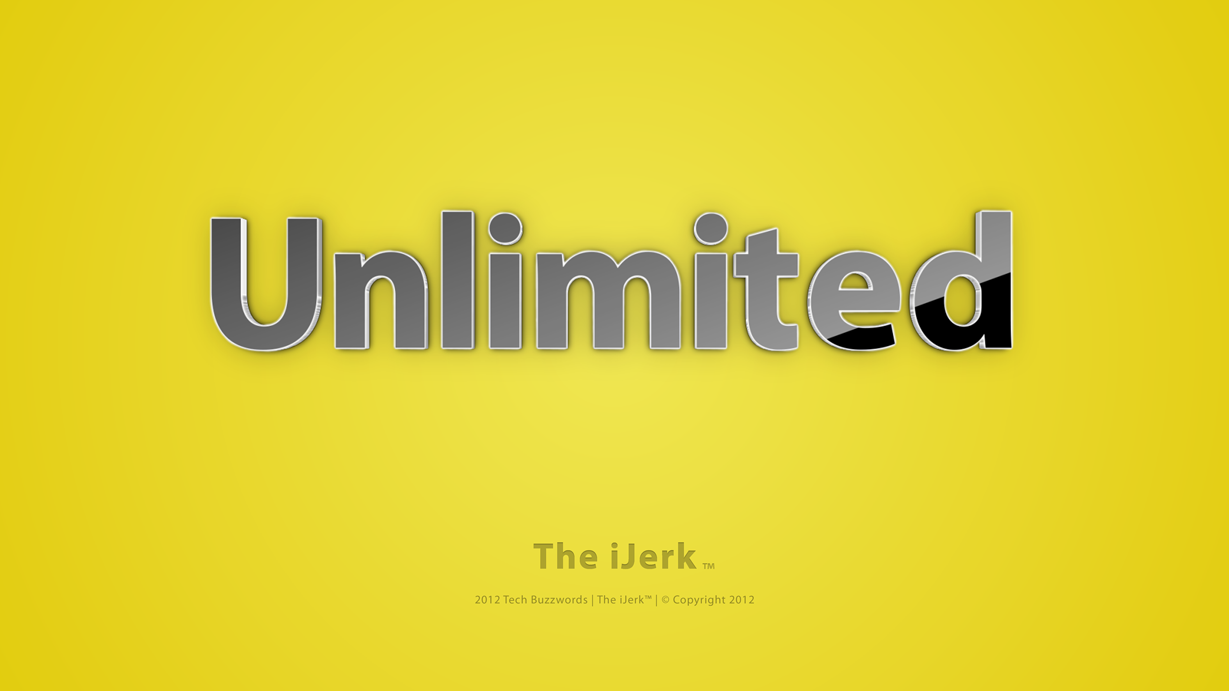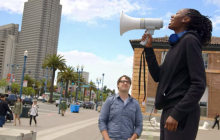Another year of the ‘important-sounding’ technical words to make us feel and appear to be smart.
However, do we really know what they mean?
This year in tech, there were tons of ‘buzzwords’ and ‘buzzterms’ used from media personalities and professionals all the way down to the layman. If you happened to skim through a blog or overhear someone’s conversation, your eyebrows may have risen, your mouth began water, or your body may have even cringed. You may have seen them in ads on the web, television or word of mouth through a trusted source. I for one was humored, annoyed and possibly intrigued by a select few buzzwords took a further look into what they really mean and why they were named so…uniquely.
I thought that I’d shed some light on the 12 that I thought were worth mentioning, hoping that we will either never hear of them again or we learn what they really mean and find other words to use in tech world. Consciously buzzwords are alphabetical order, anti-climatic, but it will be fun to see how we all reorder them ourselves). Click here to read what Merriam-Webster’s definition of the word, ‘buzzword’.
1. Bundle – The perception of value?
Cable, Satellite and Telecom companies alike, really ran away with using the word ‘Bundle’ in 2012. Offering multiple equipment, services, and additional perks over their competitors. When we see the word ‘Bundle’ we may automatically assume that we are getting a more for less deal. However, do we need everything that comes in a Bundle? Are the prices of each individual product or services appropriately advertised so I can make my own logical decision? To Bundle or nor to Bundle, ‘that is the question’. From the Author of Brainfluence: 100 Ways to Persuade and Convince Consumers with Neuromarketing. Click link to read more. The Hidden Dangers in Bundling by Roger Dooley
2. Cloud – The fluffier, the better.
Consumers where bombarded with the power, wonders and ease of the ‘cloud’. It certainly did create a buzz around the water coolers and amongst the tables at coffee shops. While the layman may have thought the cloud was some divine invention from their favorite web host, social network, favorite tech brand, or online store; it was really a fancy way of saying, “services delivered to you on demand through a network/the internet”. So where did the cloud come from? It was a stylized symbol used in drawn diagrams to represent a network. See Patents. Not everything and everyone is moving to the cloud for various reasons. Here is an article why you should and may not want to move to the cloud.
3. Droid™ – Because being human is boring.
Droid is a trademark of Lucasfilm Ltd (Yes, Star Wars) to name the beings in their movies. The name has been licensed out to companies and a certain wireless provider for use with the phones they sell. All year in 2011 and 2012 commercial spots were flooded with grandiose styled commercials telling us how the phone would make a human become extraordinary.
4. Hopper™ – Because you cannot live a second without TV.
We aren’t necessarily talking about a product that makes you hop around like a bunny or a kangaroo, but in a way you can. Dish’s “Whole-Home HD DVR service that let’s you record and watch live TV, anywhere.” Having a name such as, Hopper, Dish used more buzzwords such as Joey, to describe other parts of a package. In doing so, we can see the relation between and Kangaroo and her child, a Joey. Other competitors have similar and varying offerings.
5. Ice Cream Sandwich – It’s okay, you can have all you want.
Not exactly a tasty treat from the Ice Cream Man, but the name of Google Android’s Mobile Operating System (4.0) before Jelly Bean (4.2). Android.com defines it as having everything that people liked about previous version of Android, pulse refined functionality and features. So what sounds more exciting, to announce your Mobile OS is on it’s fourth upgrade, or calling it something people may already love and associate grate memories with?
6. Metro™ – I mean ‘live tiles’
The name that shall not be spoken because it is owned by others and means other things. So we now call it Windows 8 and they styled Default interface, “Live Tiles”. With that being said, what is a Live Tile and why does it even matter? Soluto.com best describes it as, interactive apps that sit on the Home Screen, that uses the internet to bring all sorts of information to you in order to eliminate time wasted to search and open up apps to get updated information on news, emails, friends and more. Think tons of informative widgets on the desktop of your current operating system.
7. Retina™ – It’s more than a screen.
Do you remember about hearing fancy screen terms like, “OLED” and “CRT”? Apple branded their new sharper display as, “Retina”. Other screens are about 300 dpi resolution, Retina is about 326 dpi resolution. So you can hold it about a foot away from your eyes and still make out pixel and details unlike before, according to Steve Jobs. See this article from Gizmodo when “Retina Display” was announced for the iPhone 4, But what exactly is Retina? Soon after, designs made with the purpose of being viewed on screens started being labeled, “Retina Ready”. The designs included, but not limited to: Websites, icon, Apps and more.
8. S – Because the letters, “e” and “i” are overused.
What could the S mean? …Special? Snooty? Smart? Smarter? Smaller? Smartphone? Sexy? Sharp? Slim? Slight changes? Companies such as Apple and Samsung threw around this letter a lot within the past two years. There hasn’t really been any clear indication of what it means. You can search in search engines and come pretty close to understanding that it is most likely a model name to distinguish it from it’s predecessor.
9. Scroogled™ – When Scrooge McDuck Googles you?
Trademarked by Francis Noel Collins, this word was out in front of the Bing’s Anti-Google campaign. Bing ran what appeared to be horribly cheesy ads about how consumers are allegedly mislead by Google search results and advertisements in emails. The site, Scroogled.com, seeks to inform us of Google’s business practices and also sell us on Microsoft products at the same time. Be sure to look out for a snowball effect of lawsuits in 2013 or 2014 about this one.
10. Smart – If money can buy it, why earn it?
I for one, have been amazed at all the technology that brandishes the word ‘smart’. Their are smartphones, Smart Cars, smarttrip SmarTrip cards, and smart TVs; just to name a few. The general reaction from consumers is that they feel smarter, by buying products that tell everyone that they are smart. Yes, mostly marketing hype, but the general message and understanding makes its way to the customer enough for them to feel like they are making a smart purchase. The question remains the same as it has before, “Are you really a better person for buying that new toy?”
11. Ultra – What’s better than that?
When you really want to drive your point home, use words that are usually not in a consumers vocabulary. Most people cannot tell you what it means, but they have a good sense that it means something along the line of a definite state. Ultra in fact means, 1. extreme, 2. holding extremist views, or 3. excellent. So when someone says something like, “Ultrathin”, “Ultra Portable”, and “Ultra-Fast High Speed”; they better mean it. So then, what happens when the Ultrathin becomes thinner?
12. Unlimited – The less numbers, the better.
Just like the word Ultra, Unlimited used in Wireless Provider advertising terms is meant to evoke a sense of assurance about a product or service. When actually defining “Unlimited“, it means unrestricted, having no limit, undefined. This caused quite a stir within the Telecom community. Claims of companies throttling data, talk time, even the amount of texting sent customers in an uproar. I won’t get into specifics of who it who, but Unlimited may not stop being used for quite some time.
Something to Think About:
Why use buzzwords such as the ones displayed above? With all humor aside, we react first by emotion, and then logic. We first perceive buzzwords on a subconscious level, and they do convey an emotion based from our own experiences. What means may attract some, may deter another. When it comes to the three main types of consumers such as, the ‘Tightwad’ (show the most resistance to spend money), ‘Unconflicted’, and the ‘Spend-Thrifts’ (Voluntarily spend); marketing to them all in as few messages as possible is imperative. Marketers seek to hit two points with one stone by addressing the Utilitarian and Hedonic points, therfore covering both the usefulness and pleasure that comes with the purchase of their product or service.

